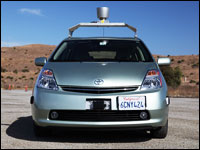
In the U.S., we spent last week celebrating Independence Day — the day we split from a government that our ancestors didn’t trust because it was disconnected from the people. It is fascinating to watch the leaks coming out lately, which suggest our government is acting against the best interests of the people, given that the focus is to neutralize the leakers rather than refocus government attention on the people’s needs.
This struck me as I read an article in Ad Age about the “Global Meltdown of Brand Obama”, as if this problem were somehow created by bad marketing. The president’s current world tour seems designed to improve his image, but the effort is failing against the onslaught of Snowden releases.
Marketing can reduce the negative perceptions, but it can’t solve the core problem: a government acting against the people. If this continues — and by now we should recognize this isn’t an isolated issue — things are going to get much worse before they get better. Currently, revolt is not imminent in the U.S., but I think it will just take the right kind of trigger. The potential of several is evident, but there is one in technology that I don’t think folks are looking at — and it could have the biggest impact. I’ll go into that this week.
I’ll close with my product of the week — and I make this my product of the week most summers, because it is the one thing that lets me sleep on a hot summer night without having to put the air conditioner on freeze.
Trust in Government
At the core of the problem is arrogance and entitlement — too many in government feel too secure. When this happens in companies, you get executives acting against the interests of investors and customers. When it happens in governments, you get corruption and officials acting against the interests of the people.
At the core of the U.S.’ fight for independence was a distrust for a government that was remote and appeared disconnected from the people’s needs. In Egypt and Syria real time, you can see what can happen when large numbers of people lose this trust. You get demonstrations and even civil war. With approval scores for most parts of the U.S. government at historic lows, we appear to be waiting for a trigger event that will coalesce this distrust into action, with violent results.
Distrust alone would not do this; it requires a trigger, and there are several big ones coming that we’ll need to watch closely. Triggers could be people like Manning or Snowden who become casualties to the cause and are martyred, becoming far more powerful in death than in life. However, major changes that put large numbers of people out of work could also be a trigger, and a big one is self-driving cars.
The Self-Driving Revolt
Now you may think it’s incredible that I’d argue people would revolt if they got cars that drove themselves, and I’d be with you had I not read a piece on the bigger picture behind this technology coming out of the Aspen Ideas Festival and a talk by a GM executive.
Once we have technology that will allow cars to be driverless, then buses, taxies, delivery vehicles, trains, subways and ships can also function without people steering them. Drones are just a step away from planes without pilots. That’s a lot of jobs that will become obsolete in a very short period of time.
Now if you think through the intelligence it requires to drive cars and apply the self-driving concept to other fields like janitorial, gardening (particularly at scale), road maintenance, firefighting, military, and law enforcement — you could supplement officers with patrolling cars with cameras — then you jump to massive numbers of jobs that start to dead end or just end.
What is kind of interesting is that an episode from the 1960s series The Twilight Zone, “The Brain Center at Whipple’s,” appears to anticipate this result, but it avoids the issue of what the suddenly unemployed people end up doing.
Take the foreman in that episode and multiply him by several million, and you’ll get the point I’m trying to make. I expect they’ll be pissed — and if they don’t trust the government, using the system to express their displeasure is not a likely outcome. Currently the part of California I live in is in gridlock because just one mass transit system, BART, is down due to a strike over wages. Just think how these folks will react when their jobs become obsolete in just a few years.
Wrapping Up: Avoiding a US Revolt
This outcome certainly can be avoided, but not if confidence in government remains at historic lows, and not if this amazing technology comes to market without any regard for what will happen to the people suddenly displaced. With these two things combined, we have a high potential for an event that is both massive and violent.
It will likely break first at city centers, in financial districts, and near existing transportation hubs, suggesting you may want to avoid living or working near one of those locations. Timing is likely five to 10 years, and degree of disruption will be directly related to how quickly the technology displaces jobs and how little we trust the U.S. government at that time. Given that government rarely anticipates problems like this, I doubt it will be addressed in time.
I plan to be living in Belize by then.
Product of the Week: ChiliPad

There is a handful of truly magical products in the world, and the ChiliPad is one of them. Granted, I think this because the inventor took a technology that had been developed to keep race car drivers cool and applied it so that sleepers could be cool on a hot — and in the case of this summer on the West Coast, very hot — night.

The ChiliPad both heats and cools, and it avoids the electromagnetic fields that many believe are connected to a variety of illnesses. It’s not cheap, but what is the value of a good night’s sleep? I use this product every night, and I’m likely its most visible advocate.
It works by heating or chilling a water source — it has a built-in reservoir — and then pumping that heated or cooled water beneath you. There is a small fan noise when cooling, but otherwise the device is very quiet. It has dual zones, so my wife — who tends to like it warmer — is happy as well. This not only helps me sleep — it keeps piece in the bedroom, and if you’re married, you know that “feature” is priceless.
If you are like me and want to sleep cool without running the air conditioner at night, try out the ChiliPad, my product of the week.























































Five years definitely seems a bit soon for this to be such a big deal. Between getting regulatory approval and having it implemented into cars even after getting it all finalized for a final product it seems like a bit of a longer term problem. Not that we don’t need to think about the problems they will cause. How much would you think they would cost at the beginning? That seems like that could also put off the problem at least a bit longer as well. Although I guess the companies (the ones who employ lots of people) would most likely be able to spend the money on it.
Sigh.. Yeah.. The small number of jobs lost to driverless buses will be the straw that breaks the camel’s back, not having delusional ideas about minimum wages and cost of living, half the jobs being "service industry", or bloody "temp" jobs, the later of which has this trajectory, "You will get 60 hours for the first few weeks, while we get things going, then 40, then 30, then 15, then.. well, now you are costing us too much, so we will have to replace you with new temps.", the refusal of everyone, including (or especially) the government to support jobs dealing with maintaining infrastructure (which, btw, would include those driverless buses), and on, and on.
The reality is, there may be some such driverless systems in 10 years, maybe, but its not going to be massive, high end, shipping. Not, mind you, unless everyone drags their asses and refuses to build light rail, thus making the driverless shipping a necessity. And, even then, there are going to be major limitations. Driverless cabs? Not bloody likely. The value of cabs is that the drivers can get you places you need, by knowing the city very, very, well. A driverless vehicle might know the "roads" really well, but it can’t predict how the actual city is going to change, based on, say, a convention that isn’t in its database, and what that does to traffic.
Buses, are a fixed route, and timed, and thus, a bit of a different story, maybe… So, no, I don’t think we are going to see a problem in 10 years. We are going to see one though, and, its hardly a surprise that all the idiots will be blaming the government for the result, instead of the damn business world, who are the ones really responsible for deciding that they would rather have 50 out of work people staring in annoyance at the bus they can’t afford to ride, than actually a) hire them to do something, or b) pay them anything. Its not the government’s job to stiffle adoption of technology. It *is* their job, which they are not doing, to encourage new jobs, and help us adapt to any resulting changes. And.. ironically, in that regard, the right is worse than the left, since they don’t want the government involved ***at all*** in creating jobs, encouraging jobs, in regulating industry, etc.